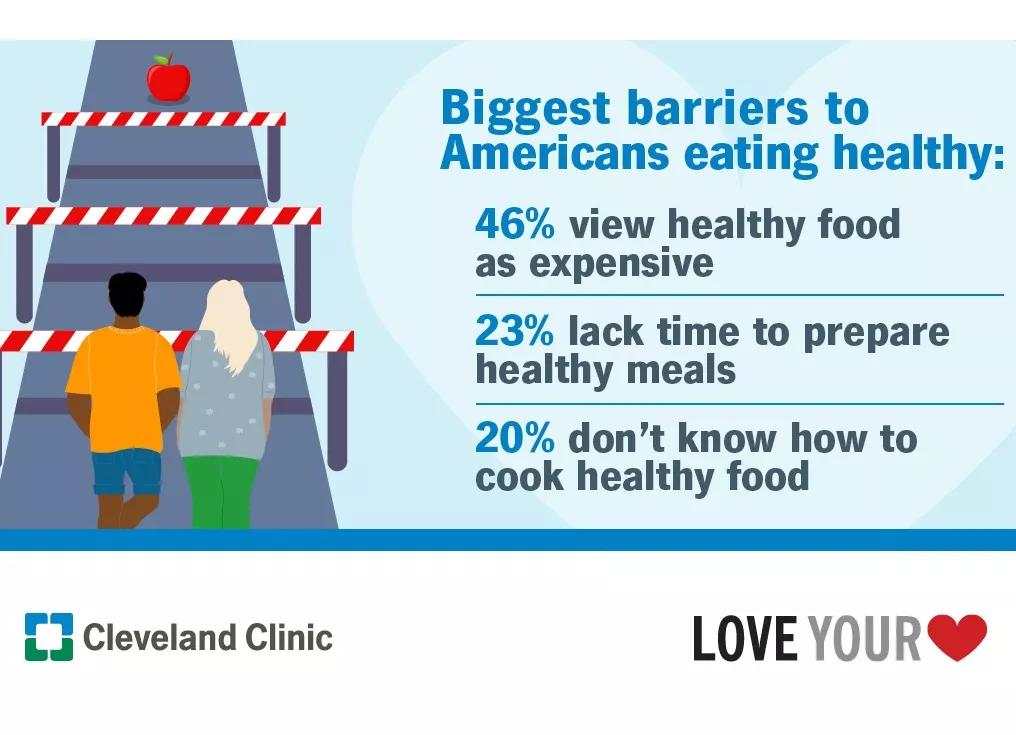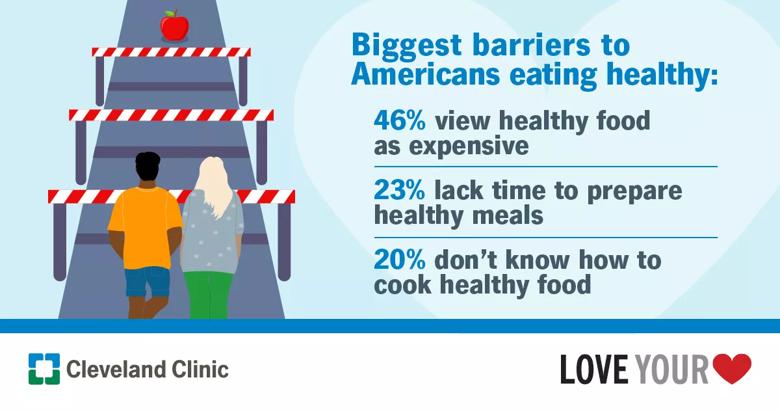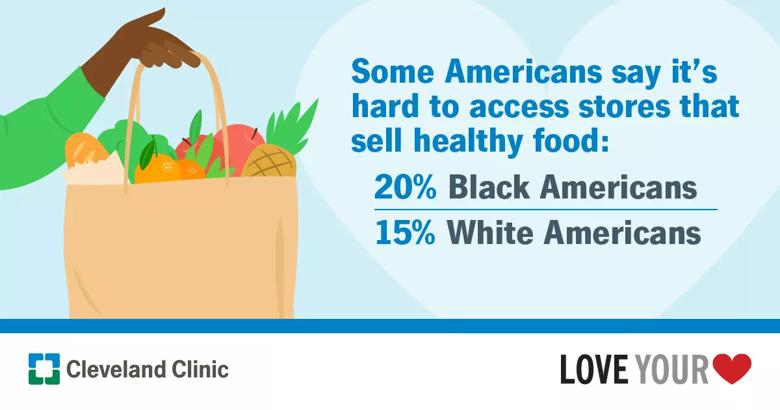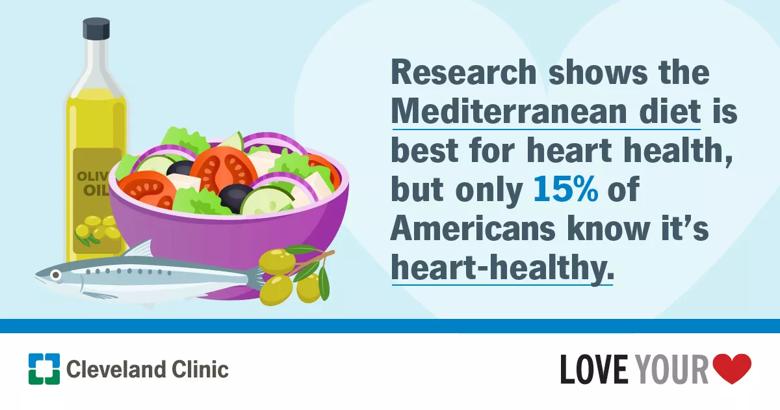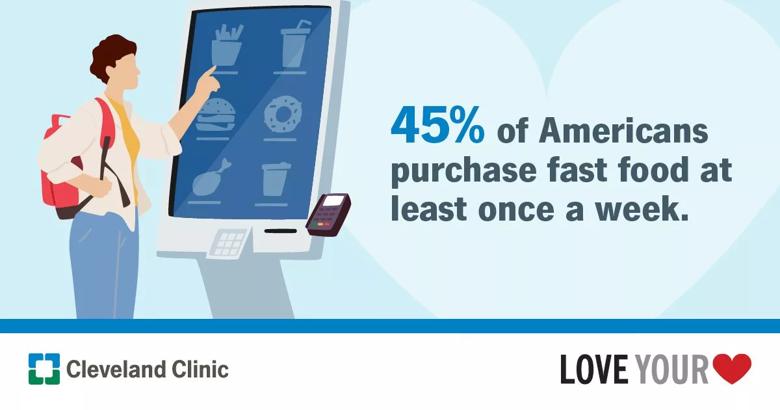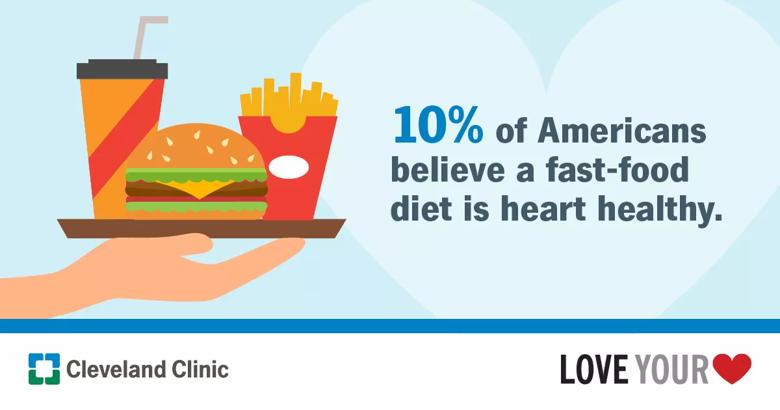American diets are notoriously unhealthy, but why? According to a national Cleveland Clinic survey, the most common barrier to a healthier diet is that almost half of Americans (46%) view healthy food as being more expensive, while also citing a lack of time to prepare healthy meals (23%) and unfamiliarity with healthy ways of cooking (20%).
Access to healthy food also can be an issue especially for minority communities. About one-fifth of Black Americans (20%) say it is hard for them to access stores that sell healthy food compared to 15% of White Americans.
Para ver una versión en español de este comunicado, haga clic aquí.
In today’s fast-paced world, Americans are pressed for time and as a consequence, heart-healthy diet and exercise choices may be impacted. The survey found that many Americans are unclear on which diets are healthiest for their hearts. In fact, according to the survey, 10% of Americans chose a fast-food diet as the most heart-healthy diet, with parents being two times more likely than non-parents to choose it.
Additionally, almost half of Americans (45%) admitted they purchase food in fast-food restaurants at least once a week, with younger generations frequenting them the most. However, the survey also found that more than two-thirds of Americans (70%) prepare meals at home at least four days a week.
“We know the large majority of heart disease is preventable through a healthier diet, regular exercise and not smoking, so we want to emphasize how important it is to make a heart-healthy lifestyle a priority for everyone.” said Samir Kapadia, M.D., chairman of Cardiovascular Medicine at Cleveland Clinic. “While years of poor diet and exercise choices can damage the heart, there’s always an opportunity to adapt a healthier lifestyle, and your healthcare provider can help you get started.”
As for which diet is best for your heart, low fat (37%) and low carb diet (35%) are thought to be the most heart-healthy by Americans, while only 15% know that the Mediterranean diet has the most evidence of benefits for heart health.
The Mediterranean diet consists of mostly fruits, vegetables, grains, olive oil and nuts, with some fish and poultry. It also minimizes dairy products, red meat, processed meats and sweets. Cleveland Clinic recommends the Mediterranean diet for lowering the risk of heart attack and stroke based on research trials that have proven the diet’s cardiovascular benefits.
The survey also found that most Americans misunderstand how much diet affects losing weight, with 71% believing that moderate exercise has a greater impact on losing weight than diet. Research has shown that a combination of both exercise and diet play an important role in living a heart-healthy lifestyle.
The survey included questions specifically for Americans with heart disease or family history of heart disease, who are 1.5 times more likely to name social gatherings (29%) as having the most negative influence on their diet. Additionally, three in 10 (29%) of those with heart disease or family history of heart disease cite being out of shape and not knowing how to start getting in shape as the main barrier to exercising more.
The survey was conducted as part of Cleveland Clinic Heart, Vascular and Thoracic Institute’s “Love your Heart” consumer education campaign in celebration of American Heart Month. Cleveland Clinic has been ranked the No. 1 hospital in the country for cardiology and cardiac surgery for 28 years in a row by U.S. News & World Report.
For more information, go to: clevelandclinic.org/loveyourheart
Methodology
Findings of an online survey conducted among 1,000 general population Americans, 18 years of age and older. Respondents were nationally representative regarding age, gender, ethnicity/race, region, education, and household income. An oversample of African Americans, Hispanics and Asian Americans was collected to reach n=250-350 total for each ethnicity/race. The online survey was conducted by Savanta and completed between Nov. 2-10, 2022. The margin of error for the total sample at the 95% confidence level is +/- 3 percentage points.

